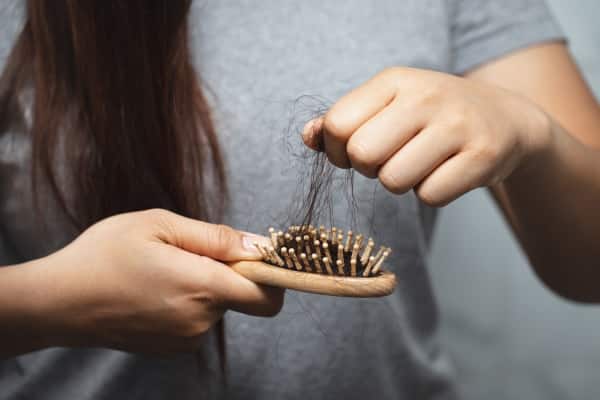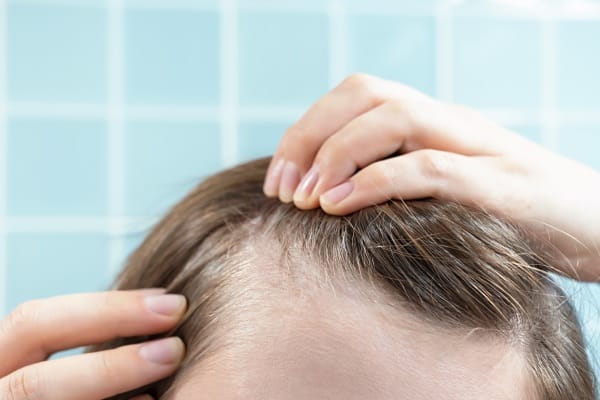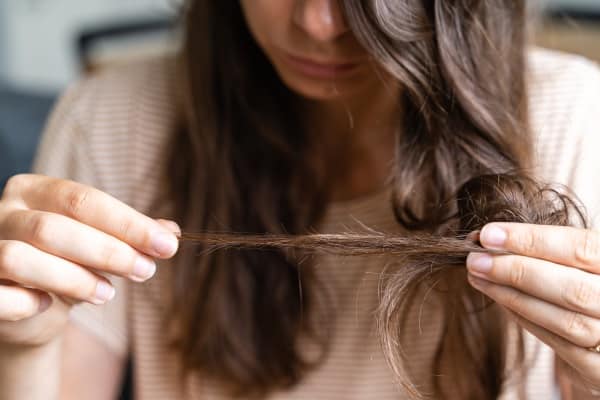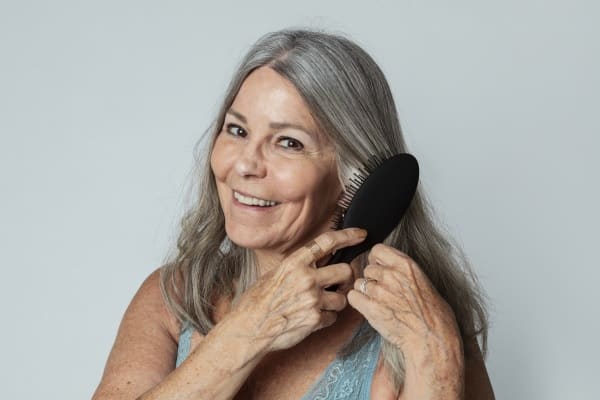Ever wondered why your hair feels dry, brittle, or too oily? It might be more than just a bad hair day; it could be a sign of your overall health. Your hair serves as a mirror reflecting your well-being, from nutritional deficiencies to hormonal imbalances. Understanding these signs can be crucial for early detection of health issues, offering you a chance to take corrective measures before it’s too late. In this comprehensive guide, you’ll discover the different ways your hair shows your health and how to interpret these signs effectively.
Contents
The Anatomy Of Your Hair

The hair strand is more than just a simple fiber; it’s a complex structure made up of multiple layers. The outer layer, known as the cuticle, protects the inner layers called the cortex and the medulla. These inner layers are responsible for the hair’s strength, color, and texture. Understanding the anatomy of hair is the first step in recognizing what changes in your hair might signify about your health.
Hair doesn’t just sprout fully formed; it goes through a growth cycle that includes phases of growth, rest, and shedding. This cycle is influenced by various factors such as age, nutrition, and overall health. Any disruptions in this cycle could be an early warning sign of underlying health issues. Therefore, a basic understanding of hair anatomy and its growth cycle can serve as a foundational knowledge base for interpreting changes in your hair’s health.
Nutritional Deficiencies And Hair Health

Nutrients play a vital role in maintaining not just your health but also the health of your hair. A lack of essential vitamins and minerals can lead to various hair problems, such as hair loss, thinning, and a lackluster appearance. For instance, a deficiency in biotin or iron can result in significant hair loss, while a lack of zinc might lead to dandruff or a dry, flaky scalp.
To maintain luscious locks, it’s crucial to include a balanced diet rich in essential nutrients. Foods high in biotin, iron, and zinc, among others, can contribute to a healthy scalp and vibrant hair. If you’re experiencing hair issues, it might be worthwhile to examine your diet and consider whether a nutritional deficiency could be the culprit.
Hormonal Imbalances And Their Impact

Hormones are chemical messengers that regulate various bodily functions, including hair growth. An imbalance in hormones like estrogen, testosterone, and thyroid hormones can have a significant impact on your hair’s health. For example, an overactive or underactive thyroid can lead to hair thinning or even hair loss. Similarly, hormonal changes during pregnancy or menopause can also affect the texture and growth rate of your hair.
Both men and women can experience hair issues due to hormonal imbalances. For instance, an excess of testosterone can lead to male-pattern baldness, while a lack of estrogen in women can result in hair thinning. Understanding the role of hormones in hair health can help you take appropriate measures to balance them, either through lifestyle changes or medical intervention.
Stress And Your Tresses

Stress isn’t just a mental or emotional burden; it manifests physically in various ways, including the health of your hair. Elevated stress levels can lead to conditions like telogen effluvium, where hair shifts from the growing phase to the resting phase before prematurely falling out. Additionally, stress can exacerbate scalp problems like dandruff and can even contribute to graying hair.
Managing stress is essential for maintaining healthy hair. Exercise, meditation, and adequate sleep can go a long way in reducing stress levels. If you notice significant changes in your hair and you’ve been under a lot of stress, it might be time to consider stress management techniques or consult a healthcare provider for a comprehensive solution.
Scalp Health: The Foundation Of Good Hair

A healthy scalp is the bedrock of healthy hair. Issues like dandruff, excessive dryness, or oiliness can not only affect your hair but also be indicators of other health problems. For example, a flaky scalp could be a sign of an underlying skin condition like psoriasis, which may require medical attention.
Maintaining a healthy scalp involves more than just shampooing. Proper hydration, regular exfoliation, and even the right hair products can contribute to a healthier scalp. If you’re experiencing persistent scalp issues, it may be a sign to delve deeper into your overall health and consult a healthcare provider.
Hair And Aging

As you age, your hair naturally undergoes changes. Graying is the most visible sign, but thinning and changes in texture are also common. While these changes are often a natural part of aging, they can sometimes indicate health issues. For example, sudden or excessive hair loss could indicate a medical condition requiring attention.
While you can’t stop the aging process, you can take steps to maintain healthy hair as you age. A balanced diet, proper hair care, and regular check-ups can help you differentiate between natural aging and potential health issues. If you’re concerned about the changes in your hair, a healthcare provider can offer guidance and treatment options.
Consulting The Experts

Sometimes, despite your best efforts, hair problems persist, signaling that it’s time to consult a healthcare provider or dermatologist. Unexplained or severe hair loss, persistent scalp issues, or sudden changes in texture should not be ignored. These could be symptoms of underlying health issues that require professional diagnosis and treatment.
Early detection and intervention are crucial when dealing with hair and health-related issues. If you’re experiencing persistent problems with your hair, don’t hesitate to seek professional advice. Various tests, such as blood tests or scalp biopsies, can provide a more accurate diagnosis, guiding you toward the most effective treatment.
Take Control Of Your Hair And Your Health
In the journey of life, your hair serves as a subtle yet telling roadmap of your health. While it’s easy to dismiss hair issues as mere cosmetic concerns, they often reflect deeper, underlying health conditions. So, don’t just brush off those bad hair days. Be proactive in understanding what your hair is telling you about your health and take steps to address any concerns. Your hair, and more importantly, your health, will be better off for it!


